Gut Yom Tov! לשנה טובה בלימוד החסידות ובדרכי החסידות תכתבו ותחתמו!
Hisvaaduyos pe’ilos! Hatzlocho Rabo!!
ב”ה. יום הבהיר חג החגים י”ט כסלו, ראש השנה לחסידות, אור לכ’ כסלו, שנת “שבעת” לפ”ק
Dear Alumni Sheyichyu!
Sholom U’Brocho!
First of all – Gut Yom Tov, L’Shono Tova b’limud hachassidus ubedarkei hachassidus teikoseivu veseichoseimu!
Mazel Tov to Berri Spitezki on the occasion of his engagement. May he use out the special period of Yokor Mikol yokor to its’ utmost! Mazel Tov to Rabbi & Mrs. Avremel Matusof ([email protected]) on the birth of their son. Mazel Tov to Rabbi & Mrs. Sholom Kass ([email protected]) on the birth of their son. Mazel Tov to Rabbi & Mrs. Moshe Dovid Winner ([email protected]) on the birth of their son. May they bring them up lTOveCHuMAA”T mitoch harchovo, and to be true chayolim! (If anyone is aware of any mazeltov’s that I omitted please let me know).
Thank you as always for the feedback, it is much appreciated.
I was recently given a copy of memoirs written by Mrs. Mussia Schtroks and Mrs. Riva Raskin about their father R’ Avrohom Yeshaya Schapiro OBM. The following excerpt, although set against a rather morbid background, contains an incredible lesson for all of us:
On the 22nd of June 1941, at 4 p.m., war broke out in Russia. Whereas food was never plentiful before the war, and one invariably had to queue for everything, now with the start of the war, rations came into force immediately. . . The Germans surrounded Leningrad and bombed it relentlessly. One day they let loose incendiary bombs on the food stores, and they went up in flames.
Famine reigned supreme. The bread rations went down dramatically to 125 grams (3 ounces) per person per day. Winter set in very severe. No food, no heating, only bombs were in abundance. The streets were strewn with corpses. It was devastation at its peak. . .
Father A”H fell sick. . . I well remember his loud groans of pain. . .
Father A”H became weaker, he was now confined to bed and was often delirious. Yud Tes Kislev came, father’s last in this world. . .R’ Peretz Beresin, his father and a couple more Chassidim decided to spend Yud Tes Kislev with our father ע”ה, having heard that he was sick. One of them managed to obtain a small bottle of mashkeh, another one got hold of some herring and even some latkes, and they made their way to our apartment. They found our home dark and bare and absolutely literally freezing. Fatherע”ה was in bed delirious and oblivious to his surroundings.
They went out again to try and obtain some heating material. After a great deal of effort they found in a warehouse an old wooden door. Despite the risk involved (they could have received a severe prison sentence for this), they laboriously schlepped it to their destination, converted it into firewood, and proceeded to heat our home. With the room becoming a bit warmer, they approached our father, calling him by his name, and announcing “Today is Yud Tes Kislev”.
The Yud Tes Kislev call penetrated his consciousness and he woke up. Not just that, but he actually managed to sit up and take part in the farbrengen, which lasted for a lengthy period. Thus, just over three days before departing from this world (on the 23rd of Kislev), while being mortally ill, the fire of chassidism within overcame even the shadow of the Angel of Death.
[Tragically shortly afterwards (on the 11th of Teves) his wife, too succumbed to the hunger, followed, not long thereafter, by one son and daughter. But the 2 above-mentioned daughters survived, with the help of Hashem, to pass on the burning torch that sustained their father to the coming generations].
This was a young father and husband who was physically ill and bedridden. He was ravaged by illness and weakness that was, shortly thereafter, to claim his life, and had already made him delirious and unreachable.
But, even in such a situation, the fact that it was Yud Tes Kislev penetrated his consciousness, and drew him out of his delirium. The farbrengen of Yud Tes Kislev was not something performed in a superficial way; for these Chassidim this was their very life, in the most literal sense!
It is something that we should all consider and learn from. When we say about Yud Tes Kislev אור וחיות נפשנו ניתן לנו, this is not merely a slogan or a poetic expression. A chosid needs to recognize that his attachment to and adherence to chassidus is really the source of his very life and sustenance in a very physical sense.
And this has to be reflected in the manner in which we apply ourselves both to the learning of chassidus and conducting ourselves in its ways. A shiur in chassidus cannot be something that is pushed aside whenever some “important” distraction comes up. The realization of the place chassidus has in our life needs to be the guideline for establishing our priorities.
Some years ago, a parent of one of the bochurim farbrenged in the Yeshiva in honor of Rosh Chodesh Kislev. This parent was a shliach who was just returning from the kinus hashluchim, and during the farbrengen, he related the following:
‘During the kinus this year, I met up with a friend of mine, who serves as a shliach in another country. On Thursday night, we walked together to Oholei Torah, to take part in the workshops. On the way I noticed that my friend was limping. I asked him what happened, but he insisted that it was nothing, and that he would be fine.
Over the course of the evening, however, his foot deteriorated, to the point that he could barely walk. When it came time to go home, although the place where he was staying was on Carrol St, just over 2 blocks away, the walk was too much for him to handle, and we had to bring him there by taxi.
“Something is obviously very wrong with your foot”, I exclaimed, “shouldn’t you seek medical attention?” But he continued to maintain that it was nothing, and that by the next day there would be no trace of the turmoil.
Sure enough, when I saw him the next day, he was walking normally. I pressed him for an explanation, and he shared with me the following amazing story:
“When I was a child (he related), learning in Lubavitcher Yeshiva, I once had an accident while playing sports, and injured my foot. My parents wrote in to the Rebbe, who responded ליזהר בכשרות האכילה ושתייה – to be more careful with kashrus.
“Now, I was a Lubavitcher kid, from a Lubavitcher family, and we were obviously keeping kosher at home, but as a result of the Rebbe’s response, we found some ways in which we could raise our standards.
“This happened some 30 years ago, and since then, any and every time I compromise in my standards of kashrus, my foot immediately begins to ail me!
“On the way to the kinus, my flight had a stopover, and my second flight was delayed, and I was stuck for some time in an airport. I was, understandably very hungry, and was looking for something to eat. I found some food item for sale, that had a hashgocho. I knew inside that I should really not be depending on that hashgocho, as it was not up to my standards, but I chose to overlook that.
“Therefore, as soon as my foot started hurting, I knew with certainty what the cause was. I made a hachloto on the spot to stay away from this hechsher in the future, and was certain that my foot would be better the next morning, which it was!”
With this shliach, his physical health was tied to his spiritual behavior in a very tangible and visible manner. Imagine if we all lived that way, we would be living at a much higher standard. But that would remove our b’chirah chofshis.
Yet we must know and understand intellectually at least, that in truth this is the case, in actual fact our Yiddishkeit and chassidishkeit are not something extra that we practice, but they are our very life. The same importance that we attach to other things on which our life and health depends (like our cell phones and i-pads . . .) needs to be attached and applied to every part of our chassidishe conduct.
Matisyahu (heard of him?) recently removed his beard. Whatever his reasons were, it gives the impression that his beard was to him a superficial disguise, an external trimming that could be put on or removed (depending on how it affects the ratings or whatever).
You didn’t see him wake up one day and remove a finger or a leg or his head. But his beard, to him, was obviously expendable. But to a chosid a beard should be no more expendable than his head. Because living like a chosid is the source of or vechayus nafshenu in a very literal sense.
And, by the same token, just as you can’t decide one day to remove your head or your beard, so too you can’t decide one day to remove a portion of the time spent learning chassidus, or any of the ways by which you live according to its directives. This, then, is the realization that the Yud Tes Kislev farbrengen should grant us.
Perhaps if we make an honest evaluation, we may discover that in a spiritual sense we are delirious, we are floundering and feel unable to rise (just as the chosid, in the first story, was physically). We may be so deprived of ruchniyus that we become oblivious to our spiritual surroundings.
But, even in such a state, the specialness of Yud Tes Kislev has the power to penetrate our consciousness, to overcome our apathy, and to draw us out. Because in truth chassidus is our very life, therefore, no matter how far gone we think we are, it can restore us.
And then we can live in a way that demonstrates our consciousness and awareness of the fact that it is our chayus, our very life, by conducting ourselves in a way that demonstrates that the central and most important parts of our day are our limud hachasidus and darkei hachassidus!
L’chaim! May we all acknowledge and recognize that chassidus is the literal אור וחיות נפשנו and may the day of the giluy of chassidus and Rosh Hashono l’chassidus serve as the final preparation for אתי מר – the complete and final geulah and “Torah chadosho mei’iti teitzei”, with the immediate revelation of Moshiach Tzidkeinu TUMYM!!!
Rabbi Akiva Wagner
לזכות ר’ שלום מרדכי הלוי בן רבקה, לגאולה וישועה קרובה ושלימה, תומ”י ממש בטוהנוהנ”ג, שיהי’ גאולה בכל הפרטים ובפשטות ולמטה מי”ט!

